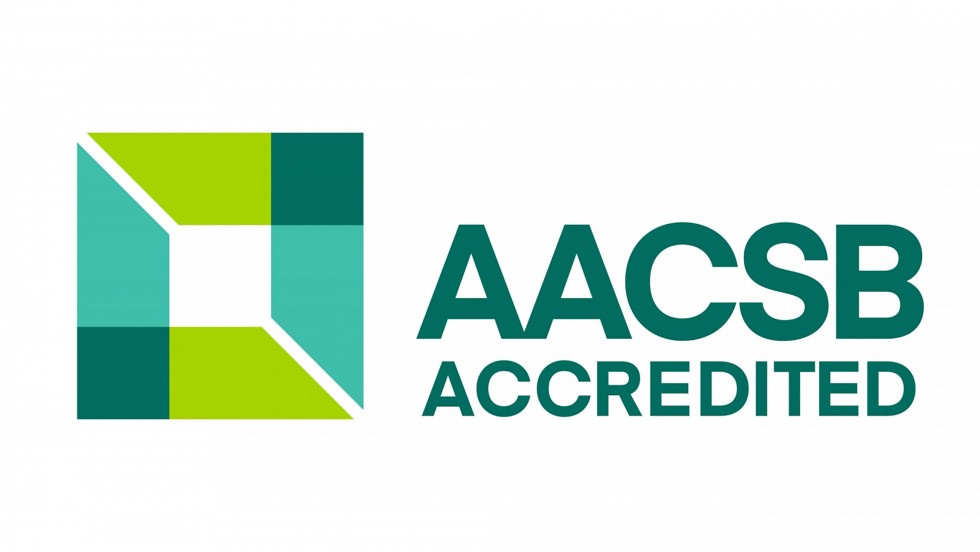International Business Graduate Certificate
The International Business Graduate Certificate Program provides business professionals with the skills to manage business operations across international borders.
Finish in 9 to 12 months. Fully online and hybrid options available.
Upcoming Application Deadlines
- Fall Semester: August 1, 2025
- Spring Semester: January 1, 2026
15-Credit Graduate Certificate in International Business
The International Business Graduate Certificate Program provides students with the skills to manage business operations across international borders, focusing on global markets, cultures, legal frameworks and economic systems. Students will gain skills in managing the networks used to produce and transport goods and services across different markets and spanning multiple countries and continents to source materials, manufacture products and market them to consumers.
Through this certificate, students will:
- Understand the nuances of communication and human resource management in an international organization.
- Identify key financial issues relevant to an international business's success.
- Develop successful approaches to global supply chain management.
- Identify the relevant legal issues when managing a global business.
- Develop awareness and understanding of key cultural, political and economic factors relevant to international businesses.
This program can be completed fully online or with a mix of in-person and online classes. Its flexible schedule is designed to meet the needs of working professionals.
Students who complete this graduate certificate and wish to pursue their Master of Business Administration may apply these courses toward the master's degree.
Become a Skilled International Business Leader
The 15-credit International Business Graduate Certificate includes five courses to ensure students broaden their understanding and strengthen their ability to manage business operations internationally. The program includes a combination of thought leadership, collaborative projects and hands-on simulations.
This course explores the financial systems, policies, and strategies that govern international markets. Students will gain a working knowledge of the practical applications that integrate theory, methods, and practice of international finance through a focus on controlling exchange rate risk and approaches to financing multinational corporations, capital flows, international financial environments, types of institutions and instruments, foreign exchange operations, and the role of global financial institutions. Students will be able to explain the effects of global financial crises, the role of multinational corporations, and emerging market economies. They will learn to understand and apply the major aspects of investment decision-making performed by managers of multinational corporations.
This course provides an in-depth examination of global supply chain management's strategic, operational, and financial aspects. Students will explore key topics such as supply chain design, logistics, procurement, inventory management, risk mitigation, and the impact of globalization on supply networks. The course emphasizes the integration of supply chain processes across international markets, the role of technology in optimizing efficiency, and the challenges posed by geopolitical and economic factors. Key topics include basic supply chain metrics, tradeoffs in making supply chain decisions, and tools for effective and efficient supply chain management, production planning and inventory control, order fulfillment, and supply chain coordination. Through case studies and real-world applications, students will develop the skills to manage complex supply chains, enhance global sourcing strategies, and improve overall supply chain success and resilience.
The course provides a comprehensive overview of the major legal considerations involving international business transactions and operations. Students will explore key topics such as international trade law, contract law, dispute resolution, intellectual property rights, and regulatory compliance. The course also covers the role of international organizations such as the WTO, UN, and regional trade agreements in shaping global business regulations. Emphasis will be placed on legal risk management, ethical considerations, and the impact of geopolitical factors on multinational enterprises. Students will engage in in-depth case analyses and develop a discussion paper on the legal and/or ethical implications of a specific international convention, business practice, or topic involving multinational corporations operating in the contemporary international legal environment.
The course explores the development and management of human resources in international, multinational, global, and transnational firms. It explores the complexity, challenges, and choices managers encounter and their strategies to effectively develop and manage their international workforce in culturally and geographically diverse environments. The course examines key topics such as global talent management, international labor laws, diversity and inclusion, expatriate management, and conflict resolution in an international business context. The course emphasizes the role of effective communication in managing a global workforce, fostering collaboration across cultures, and navigating the complexities of international HR policies.
This course examines the complex relationship between domestic and international politics and culture and how they influence economic relations for businesses operating in the global arena. Topics include major types of cross-border flows and the policies and international institutions that regulate them: the flow of goods (trade policy), people (immigration policy), production (foreign investment policy), capital (financial and exchange rate policy), and information (data policy). The course emphasizes critical analysis of contemporary global issues, including economic inequality, political conflicts, cultural identity, and the impact of international organizations such as the UN, IMF, and World Bank. Through case studies, research, and in-depth discussion, students will develop an understanding of the interconnected forces that drive global change and influence decision-making in international business organizations.
Growing Demand for International Business Managers
The U.S. Bureau of Labor Statistics expects managerial roles to grow faster than the average for all occupations through 2033, and with many multinational corporations (MNCs) headquartered in the United States, now is the time to gain the in-demand skills to oversee global operations, including sales, marketing and manufacturing, among others.
The average salary for an international business manager is $163,669, according to Glassdoor.
33% of the more than 200,000 multinational corporations (MNCs) globally are headquartered in the United States, according to Global Data.
There are 44.3 million workers employed worldwide by U.S. MNCs, a 2% increase from 2022 to 2023, according to the U.S. Bureau of Economic Analysis.
Upcoming Graduate & Professional Studies Events
-
Virtual Information Sessions
Join us for a virtual information session or drop-in session to learn more about our master’s degree and certificate programs.
The Meehan School of Business
The Meehan School of Business empowers students to be adaptive, compassionate leaders in a rapidly evolving global economy. Inside this modern, state-of-the-art business building, marketing students take courses, collaborate and build strong relationships with other working professionals.
Recent Accolades
Organizations involved in assessing U.S. colleges and universities continually cite Stonehill as being among the best in the nation when it comes to value, outcomes and a commitment to making the world a better place. See full list of accolades.
-
U.S. News Ranks Stonehill in the Top 5% Nationally
After assessing U.S. colleges and universities based on 17 measures of academic quality and graduate outcomes, U.S. News & World Report ranked Stonehill No. 73 in the Best Value category out of 1,500 colleges, while also moving up to No. 83 among National Liberal Arts Colleges.
-
Wall Street Journal 2025 Rankings Place Stonehill Among Best Colleges in U.S.
Stonehill College has been recognized again this year by The Wall Street Journal for the value it provides students, especially in the areas of career preparation and character development.
-
Money Ranks Stonehill Among Best U.S. Colleges in 2024
Money’s 2024 Best U.S. Colleges research shows Stonehill among top 10% nationwide.
Contact Information
Graduate & Professional Studies Admission assists students as they explore graduate and professional opportunities offered at Stonehill College.





